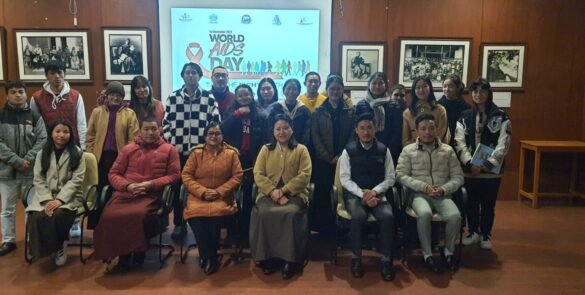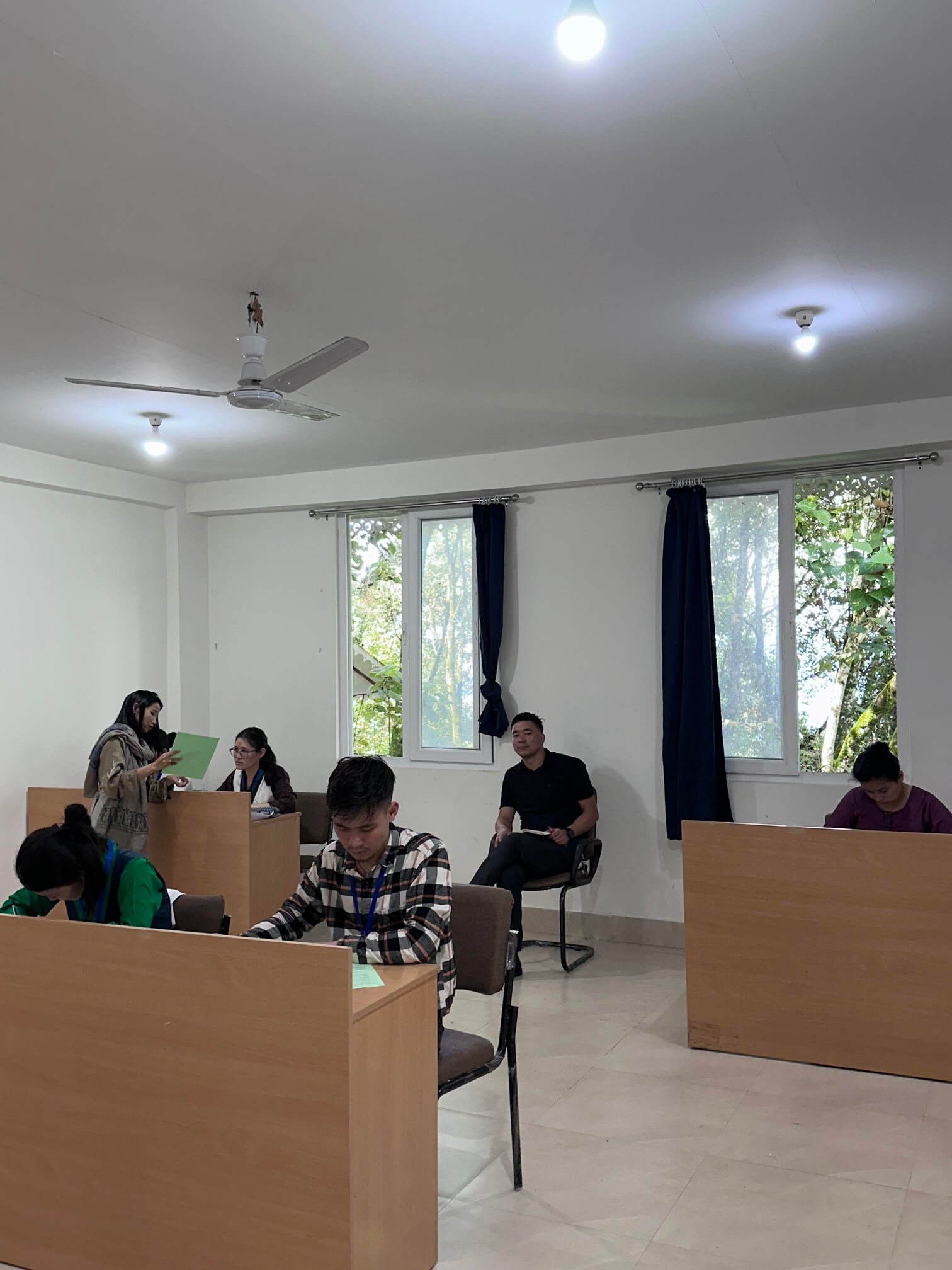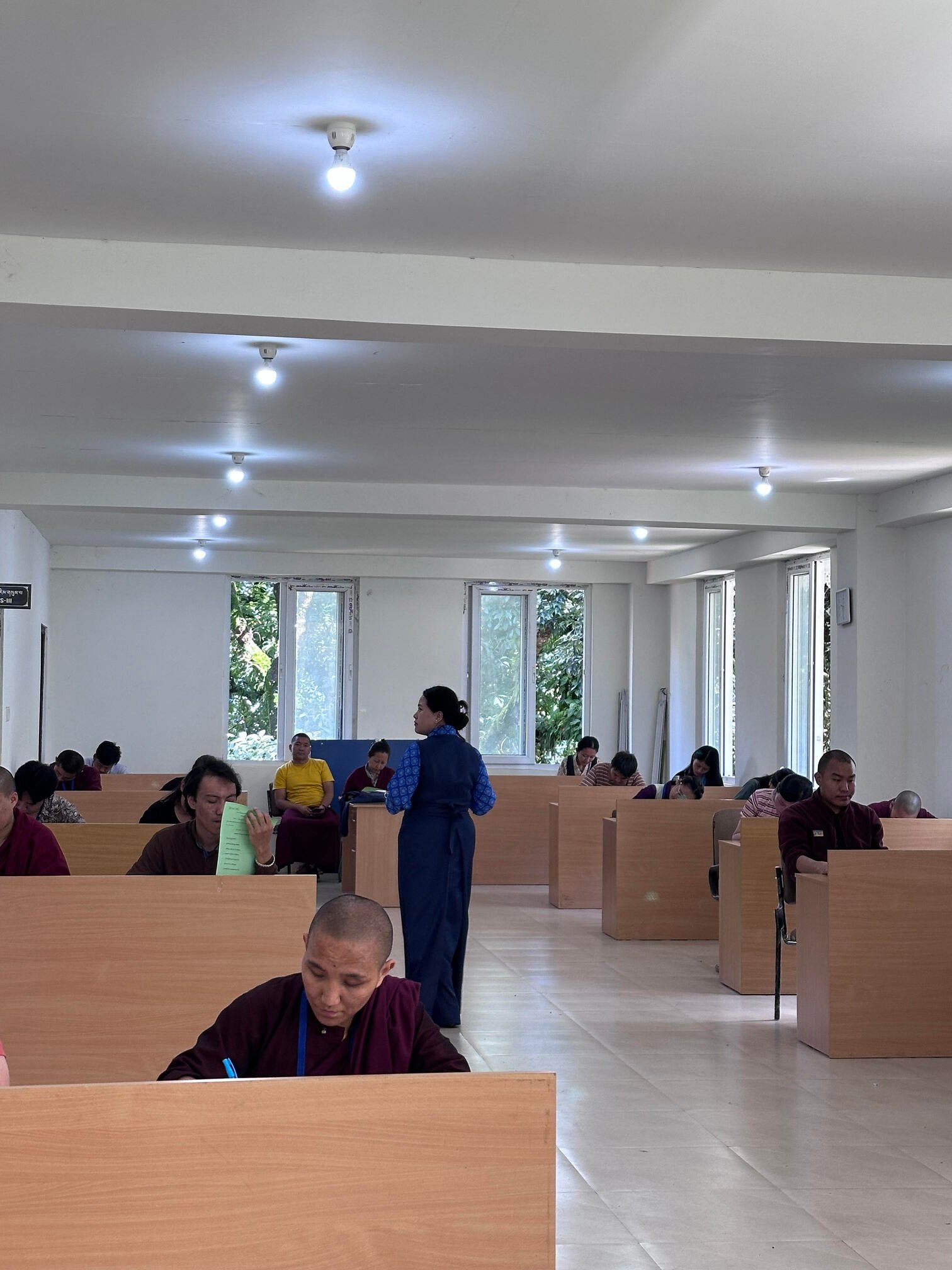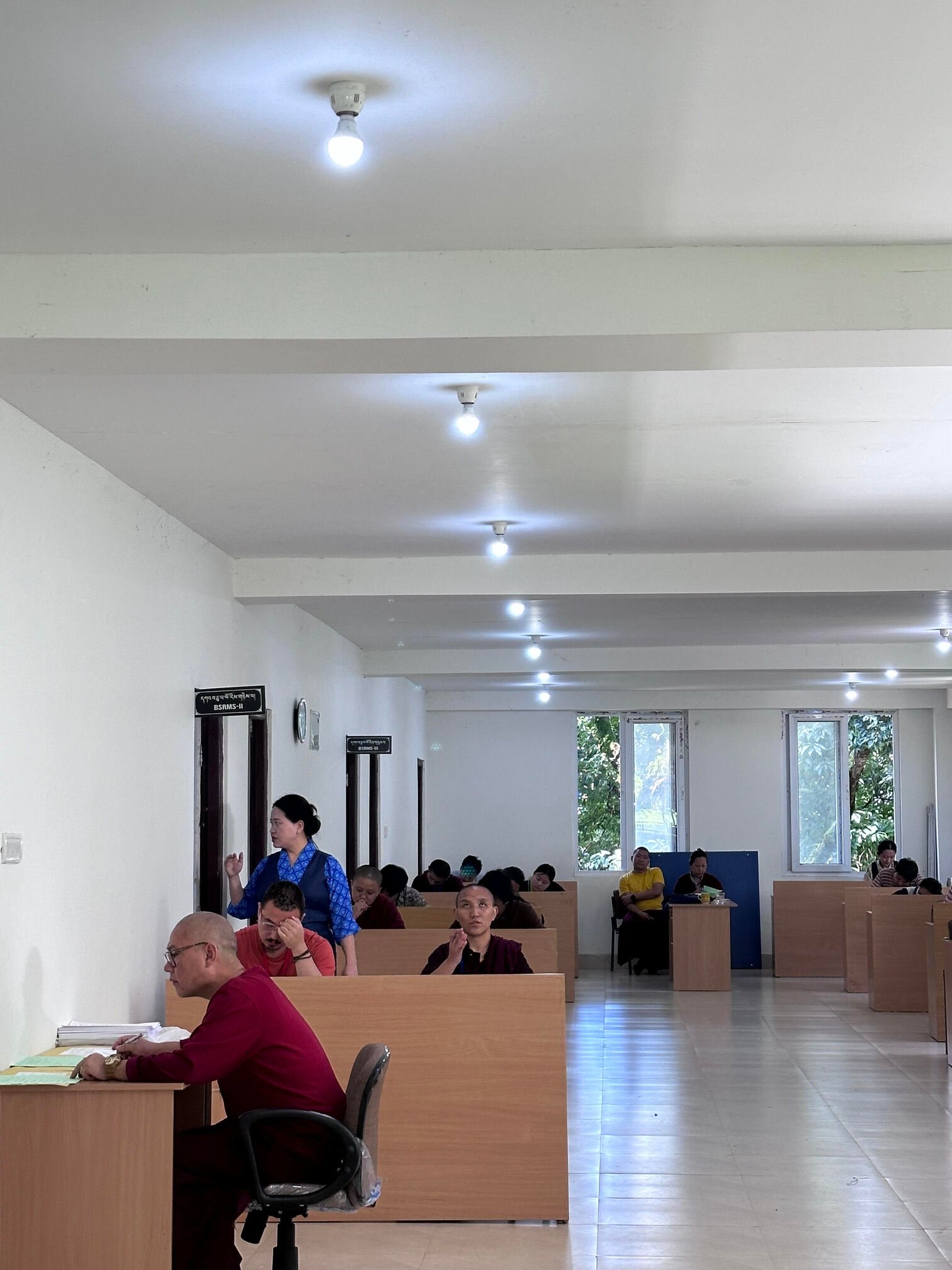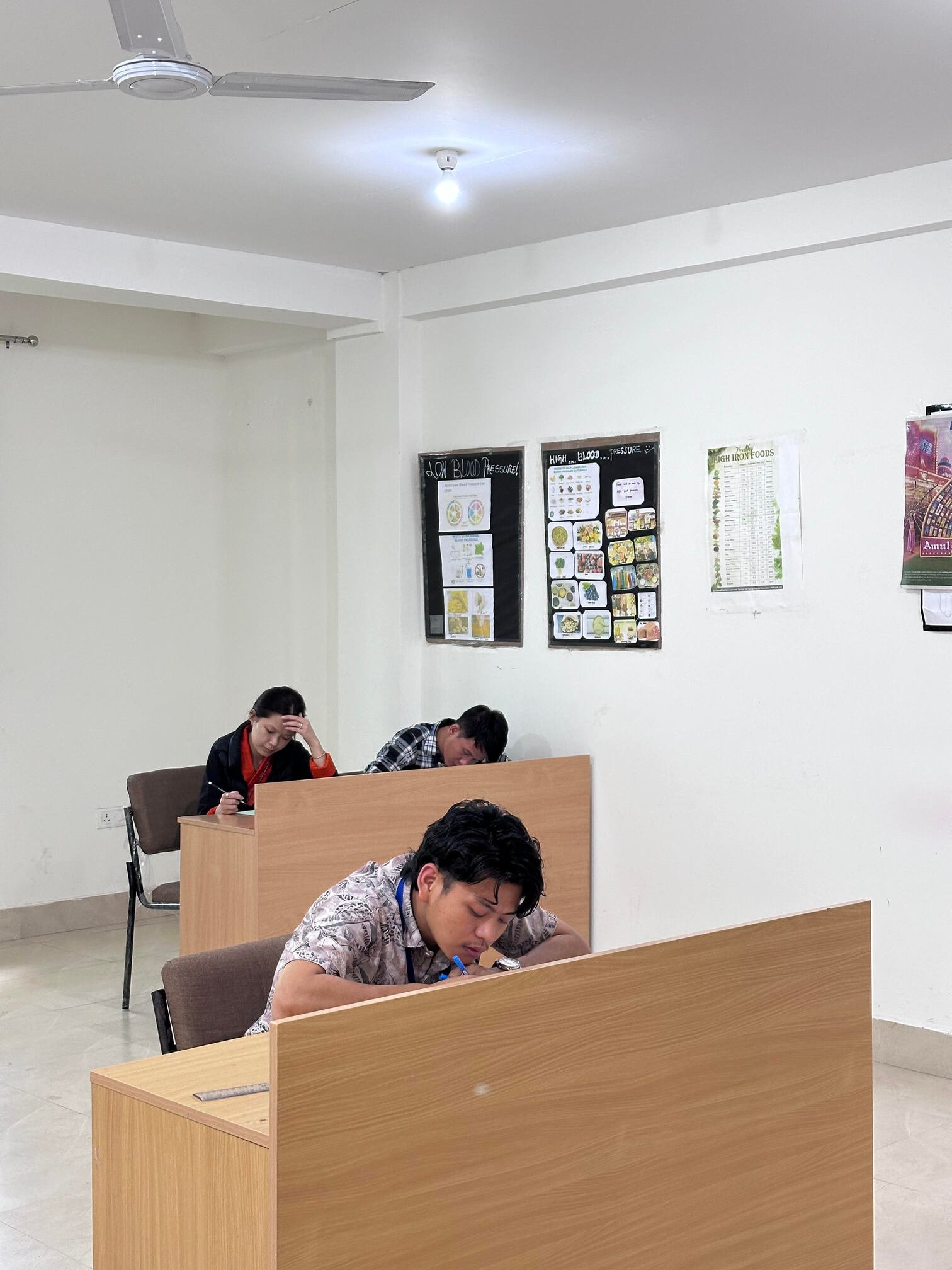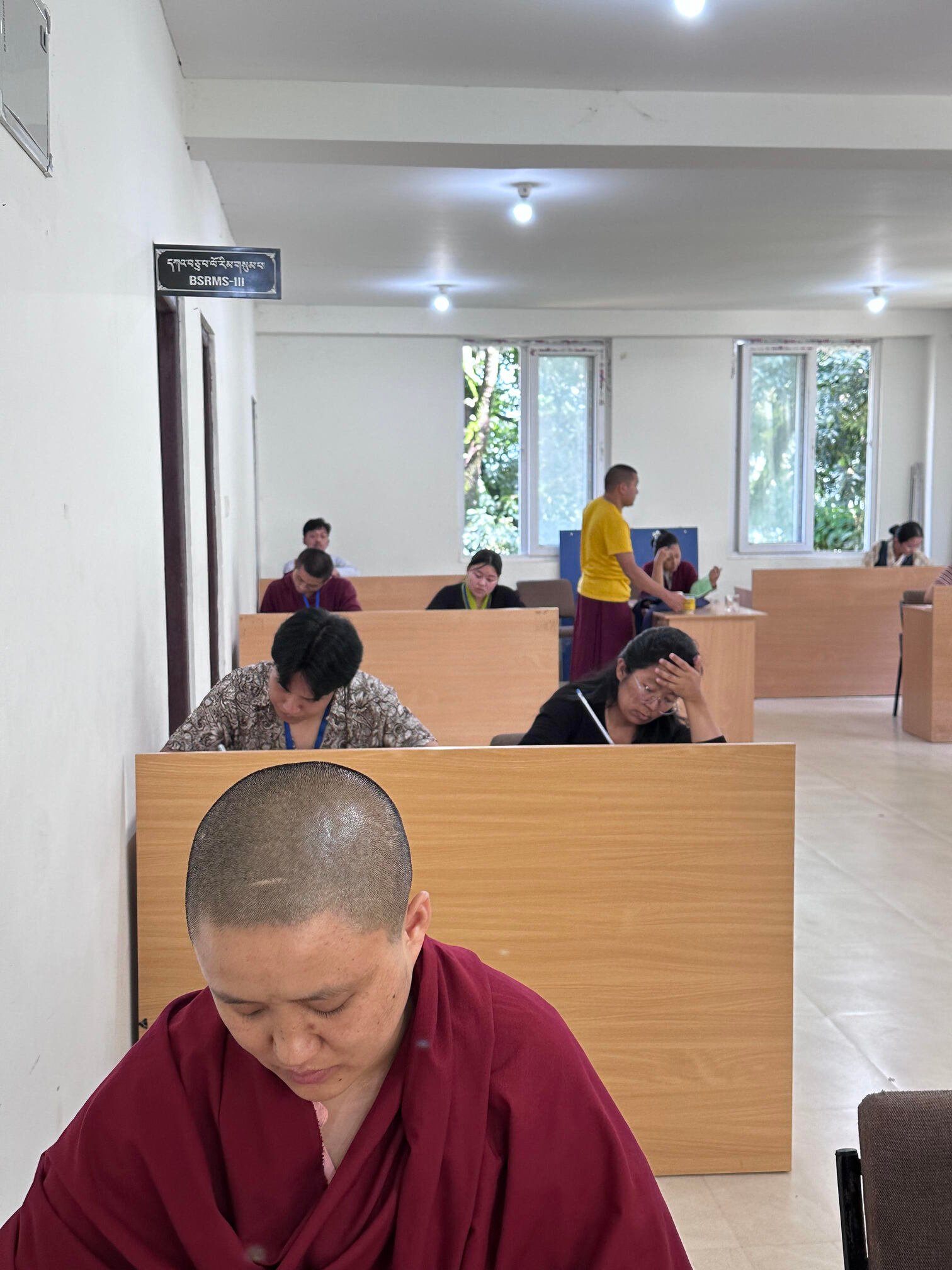Faculty of Sowa-Rigpa,
Namgyal Institute Of Tibetology, Deorali
East Sikkim
Faculty of Sowa-Rigpa,
Namgyal Institute Of Tibetology, Deorali
East Sikkim

Important Links
INTRODUCTION TO SOWA-RIGPA:
Sowa-Rigpa, one of the seven medical system registered under AYUSH, is among the oldest and well-documented systems of traditional medicine in the world. The term ‘Sowa-Rigpa’ is derived from Tibetan language with Sowa meaning healings and Rigpa meaning Knowledge. Hence, the knowledge of healing. The Four Tantra (Gueshi) is the foundational course text for the oral transmission of medical knowledge till this day. The objective of the establishment of the Sowa-Rigpa faculty, NIT, Gangtok is to impart quality education in Sowa-Rigpa system of Medicine.
This centuries old traditional medical system employs a complex approach to diagnosis, incorporating techniques such as pulse and Urine Analysis and utilizes behavioral and dietary modification, medicines composed of natural materials (herbs &minerals) and physical therapies to treat illness.
ESTABLISHMENT OF SOWA-RIGPA:
The Faculty of Sowa Rigpa was established by the Namgyal Institute of Tibetology (NIT) as mandated by the State Government of Sikkim. Under the visionary leadership of Mr. Tashi Densapa, Director, NIT, the Faculty of Sowa-Rigpa was successfully instituted and came into existence on 24 August 2017. The Central Institute of Higher Tibetan Studies (CIHTS), Varanasi and The Tibetan Medical and Astrological Institute of His Holiness the Dalai Lama (MEN-TSE-KHANG), Dharamshala, HP gave their full assistance and support in its establishment.
The seed capital of Rs. 10.50 crores to build the infrastructure of the Faculty of Sowa-Rigpa at the Namgyal Institute of Tibetology was sanctioned by the Ministry of AYUSH, Government of India and Health & Family Welfare Department, Government of Sikkim at the ratio of 90:10 (Central and State shares).
The faculty has received Conditional Permission from the AYUSH Ministry to conduct the UG (BSRMS) Course, and it is affiliated to Sikkim University (SU), a central university established under an Act of Parliament of India. Apart from the academy, the Faculty of Sowa Rigpa has four main units viz: Herbal Garden, Clinic, Pharmacy, and a Library.
The course is registered under the Ministry of Ayush, Government of India and affiliated to the Sikkim University.
A 5 and a half year long Sowa-Rigpa course (Bachelor of Sowa-Rigpa Medicine &Surgery -BSRMS) was started from 24th August 2017, with a batch of 8 students in attendance. A written examination to gauge their depth in Tibetan Language was conducted on 5th July 2017for 18 students who had applied for the enfoldment 11 students qualified to appear for the interview and finally 8 students were selected for the course.
The Faculty of Sowa-Rigpa affiliated under Sikkim University and all the exams, degrees, marksheet and timetable etc. are to be followed according to the SU norms and distributed by them. The Sikkim University also sends its team for inspection at Faculty of Sowa-Rigpa once in a year for the affiliation order.
Courses/Classes
As it is the case with many disciplines, learning of Sowa-Rigpa (Tibetan Medicine) courses in depth cannot be done through books only, but with the help of qualified teachers. The Faculty of Sowa-Rigpa, has employed highly trained, experienced teachers cum practitioners of Sowa-Rigpa.
The Faculty of Sowa-Rigpa conducts two semesters every year – i.e. Even and odd semester& for our 2nd- 5th batch (1st professional batch follows 18 months-3 semesters) which combines a tripartite approach to the study of the Sowa-Rigpa, which includes core foundation studies based on the topics of the rGyudbZhi’i (Four Tantras), complementary studies in Tibetan language, and clinical practicums. The medium of instruction and the courses are in Tibetan language. Regular class lectures cover the texts’ major topics, including general healthcare, paediatrics, gynaecology, provocations, wounds, toxicology, geriatrics and fertility. Traditional diagnostic methods of consultation, pulse reading, and urinalysis, as well as treatment methods including diet, lifestyle, herbal preparations, and external therapies are taught in theoretical lectures. Supplementary topics include Tibetan Language, Astrology, Mild External Therapies, Ethics and History of Sowa-Rigpa (Tibetan Medicine).
The Faculty of Sowa-Rigpa is following the rules and regulations laid down by the NCISM, Ministry of AYUSH and the conditional permission to run a BSRMS course has been granted by NCISM every year after fulfilling the certain criteria and physical visitation.
As per the new guidelines by NCISM, AYUSH, New Delhi, the Sowa Rigpa College/Institution/ Faculty running BSRMS course shall consist of following eight teaching departments:
1. History and Fundamental Principles of Sowa-Rigpa
2. Human Anatomy and Physiology
3. Materia Medica, Pharmacology and Pharmaceutics
4. Disease prevention and Sowa-Rigpa Pathology
5. External Therapy and Surgery
6. General Medicine
7. Paediatrics and Gynaecology
8. Clinical Psychology and Toxicology
Pharmacy
The Pharmacy Unit of the Faculty of Sowa-Rigpa is serving a dual purpose: First in imparting practical lessons to the students on making medicines; second production of medicines to be used in the clinics. Medicines are produced through the seven sub-processes: collection of raw materials, cleaning, formulation, pulverizing, pill coating, and medicine counting. Currently, the medicine is produced manually in small quantities by the students. The students are taught about various herbs and medicinal plants and the way the ingredients should be processed and combined to make medicinal compounds. When the faculty shifts to the new infrastructure, the medicines will be compounded on a larger scale to meet the demand of the increasing number of patients coming to the clinic for consultation at the faculty. Within these last few years of establishment of Sowa Rigpa Materia Medica, Pharmacology and Pharmaceutics Department /Teaching Pharmacy Department and until recent time, the Department has received machines like Pulveriser machine, grinding machine, Tray dryer machine, Pill coating machine, Dehumidifier machine, Weighing machine, Water filter etc. and equipment like steel containers, racks, utensils etc. through state AYUSH of Sikkim for the proper establishment and further development.
The students of second year BSRMS, attend practical classes as a part of curriculum at the Sowa Rigpa Materia Medica, Pharmacology and Pharmaceutics Department /Teaching Pharmacy Department daily from 2:00 PM to 4:30 PM from Monday to Friday to learn medicine preparation, formulation, detoxification etc. The student have been learning and learned various medicinal preparation like medicinal butter (basam menmar, bayi nam nga menmar), medicated oil preparation (drumbu oil, dental oil) decoctions (norbu 7 thang, nyur thang 9) different kind of pills (dadue, sengdeng 25, shije 6, yung wa 4, agar 35, aru 10 etc) ointment for burns and skin problems, medicinal incense, green citrus tonic, liver tonics, cough syrups, chongshi (calcinated) medicines, gynaecological syrup and also conducts various detoxification processes which are in huge demand among the patients.
Clinic
While giving consultation and dispensing medicines to the patients visiting the Faculty of Sowa-Rigpa, the purpose of the clinic is also to induct the students into the practice of diagnosis and therapeutics. The doctors of the faculty usually employ three methods to assess individual’s constitutional energy pattern and degree of imbalance at the clinic. First the doctors question his lifestyle, thinking, environment, food, and behavior. Secondly, the Doctor looks at patients’ skin, tongue, and urine sample and thirdly, the doctors feel (by touch) the radial artery pulse on both of the patient’s wrist, inspecting any abnormal growths or painful areas/points of tenderness on their body, and checking your skin temperature. Then the doctors of Sowa-Rigpa (Tibetan Medicine) may prescribe medicines, in addition to dietary and lifestyle recommendations. The clinic is increasingly gaining momentum and the number of patients is growing.
A. Aims & Objectives
B. Financial Details
C. Challenges
D. Present Status
E. Requirement and Proposals
F. Future Projections
A. Aims & Objectives
The primary aim of the Clinical Department is to provide practical training to the students of the Sowa Rigpa Faculty at NIT. It is crucial for students to acquire hands-on experience in Sowa Rigpa while studying the theoretical aspects of the courses. Additionally, the department aims to maintain records and data to facilitate clinic research and understand the effectiveness of Sowa Rigpa medicines in treating various ailments. Lastly, the department strives to offer consultation and treatment services to as many patients as possible.
Present status
The Assistant Professors of the Sowa Rigpa Faculty attend to patients during their off-teaching periods on a rotational basis. The Clinic is overseen by a senior Assistant Professor from the Sowa Rigpa Faculty, and there are two contractual staff members working in the Clinical Department. The majority of medicines are sourced from Men-Tse-Khang, Institute located in Dharamsala,Himachal Pradesh.
Future Projections
Looking at the growing number of patients seeking consultations and treatment at the Clinic, there is a promising opportunity for the Clinic to attract patients not only from Gangtok but also from all parts of Sikkim. This increased patient influx has the potential to generate huge income for NIT. Expanding the scale and operations of the Clinic will also contribute to the development of the planned 30-Bedded Sowa-Rigpa Hospital within the NIT campus. Consequently, the Clinic has the potential to evolve into a significant Sowa-Rigpa Hospital and Research Centre, serving as a valuable healthcare institution.
Chogyal Palden Thondup Namgyal Memorial Park
Herbal Garden is one of the most important components of Sowa-Rigpa. It is also imperative for the teaching and learning of Sowa-Rigpa herbs at the Faculty of Sowa-Rigpa (NIT). The Herbal Garden was established to popularise the knowledge of Sowa-Rigpa to the public and to conserve the rare high-altitude medicinal plants grown in Sikkim.
The Namgyal Sorig Herbal Garden has collected more than 200 medicinal herbs, shrubs and medicinal plants. The purpose of Herbal Garden is also to sensitize the people of Sikkim regarding the usefulness of various herbs and plants grown in Sikkim and thereby to encourage them to grow/cultivate the plants in their own places and farms not only for their own wellbeing, but also for the wellbeing of the people of Sikkim.
Sikkim is ideally located, in terms of high-fertile soil, sufficient rainfall, temperature, topography, and altitude for the growth and cultivation of high-altitude rare herbs and medicinal plants. Thus, presenting a unique opportunity for the cultivation of rare herbs and medicinal plants.
Sowa-Rigpa Hostel.
The Namgyal Sowa-Rigpa Hostel for the BSRMS students of NIT was constructed by AYUSH Health department of Sikkim in the year 2021.All the essential assets for the hostel was provided by Ministry of AYUSH. In total there are 45 students in total. The students have been assigned a Hostel Superintendent by Namgyal Institute of Tibetology, who acts as a warden as well and take care of the Namgyal Sowa-Rigpa Hostel.
Goals and objectives.
As Hostel life is a mixture of different culture backgrounds, where students learn to with different culture background people the main objective of Namgyal Sowa-Rigpa hostel:
• To provide the students a “Home away from Home”.
• To help all the students adjust to the new environment.
• To offer the right atmosphere for the studies and enhance interchange of thoughts and ideas.
Present Status:
SL. No | Gender | Total | Rooms assigned | Distribution |
· | Girls | 28 | 12 | 2 each |
· | Boys | 17 | 9 | 2 each |
1 single room has been assigned to the captain | ||||
Namgyal Sowa-Rigpa Library
Namgyal Sowa-Rigpa Library is a centre of knowledge and Information, which is also the learning hub for Sowa-Rigpa students, faculty and heart of the College.
Namgyal Sowa Rigpa library was inaugurated on 5th April, 2023 by the President of Namgyal Institute of Tibetology Hon’ble Governor of Sikkim, Shri Lakshman Prasad Acharya during his visit to the Namgyal Institute of Tibetology for the foundation stone laying ceremony of the construction of the 30 bedded Sowa-Rigpa Hospital in the gracious presence of Ven Sonam Lama, Hon’ble Minister, Ecclesiastical Affairs and Rural Development Department. (Vice-President of Namgyal Institute of Tibetology).
As per the Norms laid down in the minimum standard requirement (MSR) notified by the Ministry of AYUSH, a separate library for faculty of Sowa Rigpa came into existence then after. This was the genesis of the full-fledged and extensive Namgyal Sowa Rigpa Library that we see today.
The library continues to update inventories about 1015 plus books pertaining mostly to the Sowa-Rigpa, Astrology, Ayurveda Tibetan literature, medical books on Physiology, pathology, Pharmacology, Medicinal Plants besides journals and periodicals published by different Institutions/organizations and Medical Colleges.
The library continues to update its existing collection with the purchase of newer titles and books covering subjects of Sowa Rigpa Medicine, Astrology, Sowa Rigpa History and other allied subjects.
We have been able to procure more than 1015 titles of Sowa-Rigpa books for the Library mainly dealing with the knowledge field of Commentaries on the four main Tantric texts of Sowa-Rigpa, An ancient science of healing and Medical studies; and most of these books are published by the Men Tsee Kang: Tibetan Medical and Astrology Institute, Dharamshala, Himachal Pradesh. Thus, adding to the vast collection of in-depth references and text sources.
In addition to listing of books received under the Ministry of AYUSH, Government of India funding scheme, an effort is being made to make the Library of the Sowa-Rigpa more vibrant for the students and faculties using the Namgyal Sowa Rigpa Library.
In nutshell, the library aims to support the learning and teaching goal of the college and be a resource centre for research and higher learning in Sowa Rigpa. Sowa Rigpa is a growing body of knowledge and each year hundreds of new publications are made and many fresh researches are carried out in the various parts of world.
FIELD TRIP:
Apart from the regular classroom teachings, the field trip makes up one of the major components of the students’ Sowa-Rigpa curriculum. The students are taught identification of medical plants based on the shape of the leaf, colour, size, taste, potency and other parameters, and they are also imparted on the habitat and species of the plant. The herbal specimens collected during the trips are displayed on exhibition. The students present detailed report of the trip and present power point presentation of herbs — with their botanical name, characteristic features, taste, potency, and so on.
Anticipated Impact
The establishment this Institute is anticipated to create benefits for all the stake holders:
Benefits to Students:
1. Opportunity to Enrol for a Medical Degree Program in Traditional Medicine
2. Opportunity for Sikkim Domicile aspirants to enrol for the medical degree program at nominal
costs and closer to their homes
3. Opportunity to get placement opportunities in the State of Sikkim at Sub
Centres/PHCs/CHCs/District Hospitals
4. Opportunity to receive the Degree from a University of Repute
Benefits to Namgyal Institute of Tibetology:
1.Opportunity to Expand the scope of its offerings
2. Opportunity for contribute to the Society by enabling Reach of Sowa Rigpa form of Healing
3. Opportunity to contribute in improving the health indices of the State of Sikkim
4. Opportunity to expand the scope of Research & Development in the field of Tibetan form of
medicine.
5. Opportunity to provide employment opportunities to Amchis, Nurses and Support Staff,
thereby addressing the problem of unemployment/under-employment in the State of Sikkim
6. Opportunity to facilitate the existing Amchis of India gain access to Registration as Authorized
Medical practitioners.
7. Opportunity to create a revenue stream for the institute from the sale of medicine
8. Opportunity to supplement the efforts of the Government of Sikkim in its initiatives of
healthcare delivery in the State
9. Opportunity to contribute to the overall improvement in the living standards of the people of
Sikkim.
Benefits to the Society:
1. Gain access to Traditional Medicine through Registered Practitioners
2. Increase in the job opportunities for the youth
3. Overall improvements in the standard of living, thereby improving the GDP of the State
Benefits to the Amchis:
1. Employment opportunity as Faculty in the Institution
2. Opportunity to enrol for Research programs
3. Opportunity to get better employment opportunities at Sub Centres/PHCs/CHCs/District
Hospitals.
Benefits to the Government of Sikkim:
1.Ability to offer better health care facilities in the State
2. Ability to Improve the health indicators of the State
3. Ability to contribute to the increase in medical seats for the students
4. Ability to ensure overall benefits for all the stakeholders.
LIST OF CURRENT TEACHING STAFF:
SL. No | Name of the staff | Designation |
1. | Dr Tenzin Choedon | Associate Professor |
2. | Dr Passang Dolma | Assistant Professor |
3. | Dr Tenzin Thutop | Assistant Professor |
4. | Dr Zimba Topgay Bhutia | Assistant Professor |
5. | Dr Pema Namdol | Assistant Professor |
6. | Dr Tenzin Tsetan | Assistant Professor |
7. | Dr Tsering Choepel | Assistant Professor |
8 | Khenpo Karma Bhutia | Assistant professor ( Bhoti language) |
9. | Acharya Karma Sonam Bhutia | Tibetan (Grammar & Language) |
10. | Pempa Sherpa | Astrologer |
NAMGYAL SOWA-RIGPA LIBRARY:
SL. No | Name of the staff | Designation |
1. | Kunchok Thrinley | Library Incharge |
2. | Deepika Gurung | Peon |
PHARMACY STAFF:
SL. No | Name of the staff | Designation |
1. | Hissay Gyatso Bhutia | Store Incharge |
2. | Lakpa Bhutia | Pharmacy Worker |
3. | Dharmendra Manjhi | Pharmacy Worker |
CLINIC STAFF
SL. No | Name of the staff | Designation |
1. | Sherab loden | Clinic Assistant |
2. | Tshering Pemu Bhutia | Account Assistant |
OFFICE STAFF:
SL. No | Name of the staff
| Designation |
1. | Tshering Choden | Office Assistant |
2. | Lamchi Sherpa | Safai Karamchari |
Overview:
1. There are currently four sections in the Faculty of Sowa-Rigpa.
• Administrative Section
• Clinical Section
• Pharmacy Section &
• Library.
2. There are in total 51 Bachelor of Sowa-Rigpa Medicine and Surgery students:
• 1st year batch (2022-2023) – 13 & 1st year batch (2023-2024) – 8
• 2nd year – 16
• 3rd year – 8
• 4th year – 6
3. The 5th year BSRMS students-in total 9 (1st batch students) are currently doing their internship programs at respective places.
4. Namgyal Institute of Tibetology has set up a preparatory class for the students for the Language Improvement and fluency in Tibetan Language, generally the classes

